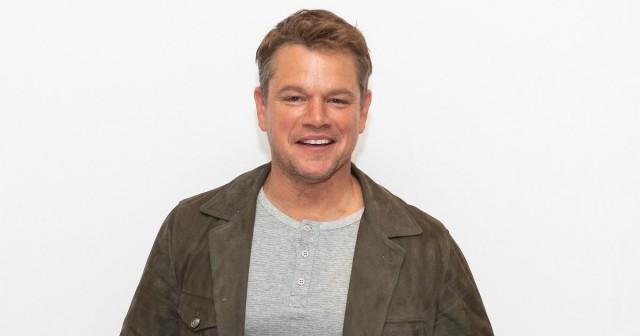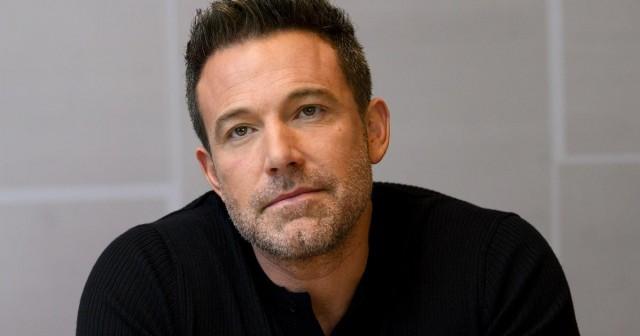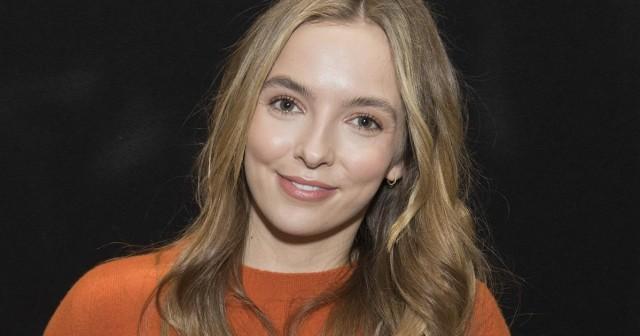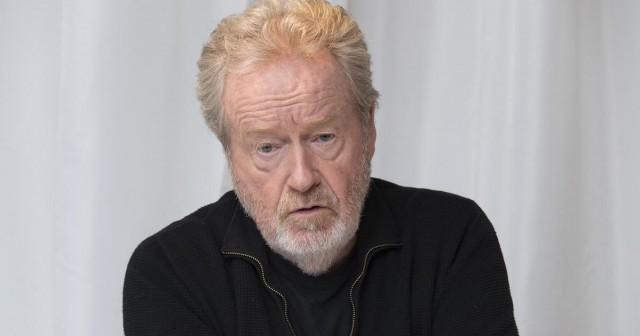Ben Affleck, Matt Damon, Jodie Comer and Ridley Scott talk of 'The Last Duel'
LOS ANGELES — Ben Affleck and Matt Damon wowed Hollywood when they were just in their 20s after bagging an Oscar for their debut writing gig "Good Will Hunting."
Now, they are back with their pens as they co-wrote the screenplay of the epic medieval tale "The Last Duel," helmed by no less than award-winning director Ridley Scott.
Ben arrived in the premiere at the Lido with Jennifer Lopez, their first public event since they rekindled their relationship in April. Matt also came with his lovely wife Luciana Barroso.
Ben plays the role of Count Pierre of Alencon in the historical drama, which was filmed in Dordogne, France and then continued in Burgundy with a film crew of 300, including 100 extras.
"The Last Duel" follows the true story of Jean de Carrouges (Matt), a 14th century French knight who embarks on a fight to the death with former friend Jacques Le Gris (Adam Driver) after accusing the latter of raping his wife Marguerite (Jodie Comer).
Adapted from Eric Jager's book of the same name, "The Last Duel" is Matt and Ben's first writing collaboration since "Good Will Hunting." They co-wrote the medieval epic with Nicole Holofcener.
We were able to interview Ben, Matt, Jodie, and Ridley at the Lido and below are excerpts from the press conference:
Matt Damon (actor/screenwriter)

This is an extraordinary pool of writers with an extraordinary director. How did you find this story and why did you decide to bring it to relevance to today?
The book was written I think in the early 2000s and someone who works in our company, Drew Vinton, who is an executive producer on the movie, has been sending us emails about "The Last Duel" since 2011. But the rights were already taken. And so we had our eye on the book for a long time and then when the rights lapsed, Drew gave me the book and I read it and immediately thought of Ridley, because we had been looking for something to do.
And also "The Last Duel," I just thought there seemed to be a parallel there and also, I don't know anybody who does this era better than Ridley Scott. So I contacted Ridley and Kevin Walsh who is another one of our producers, and they got the rights. Then Ben and I started talking about it and then we called Nicole (Holofcener, screenwriter-producer) and lo and behold, here we are.
Can you elaborate on the writing process? Did you focus on one chapter in particular or did you switch going forward?
The basic idea was that Ben and I did the male sections, the first two acts and Nicole did the third act, which is primarily Jodie's story, although Jodie enters into both of our stories. The idea was that in the male stories, the women were manifested when the men need them for something, either they are ignored or they are property, because they are not human beings, they are property and they are seen as that.
But we had to talk to each other about, because there are things obviously that are happening in the third act that are set up in the first act, so there was a lot of discussion about what the architecture was going to be. But then we split up and did drafts and then came together and then just put it together and then worked on it all together from there on out.
How have you matured in your writing and your career, and perhaps matured generally since your Oscar win for "Good Will Hunting?"
Yeah, that was a good setup for that. I think we found it an entirely different process this time, which was really interesting for us. And one of the things that has kept us from writing for so many years was the way we wrote back in the 90s, when we were 22 and 20 years old was really inefficient. We really understood the characters but we didn't understand structure.
We had read a lot of screenplays but that was how we knew structure. We had seen a lot of movies. So we ended up taking these characters and putting them in these vastly different scenarios and trying to then jam them together into something that looked like a movie. And so we ended up writing thousands of pages that we never used. And there are all kinds of scenes with the characters from "Good Will Hunting" doing all kinds of different things. It wouldn't make sense with the movie that actually came out.
So we both looked at it as something that was so inefficient that we would never really have the time to do it again because we were working so much and had busy lives. And so when we started doing this, we were both pretty surprised at how quickly it went, as Ridley said, it was like six weeks or something, it was very quick.
Ben Affleck (actor/screenwriter)

Since this movie is also a modern tale about consent and toxic masculinity, what is your opinion on that? Do you consider yourself a feminist because it seems to be a very feminist and powerful movie?
Thank you very much, yes, I do consider myself to be a feminist. And I think this movie principally was exciting to me because of the character of Marguerite, her extraordinary strength and bravery seemed very obviously once I read the book, what an unbelievably important and powerful story it was and purely classical storytelling in terms of somebody who has been done a great injustice, who goes to great lengths to seek justice at great risk to themselves.
And also it was a true story, one that people didn't know, this incredible woman from history who is an early known recorded person who spoke out against a powerful man who assaulted her. Naturally that seemed relevant and also incredibly thrilling and a story that could generate a lot of catharsis and empathy and one that I hoped would develop in the viewer a sense of compassion. We hoped the idea that we might look at one another in a different way and with more empathy and with a sense of wondering whether or not our personal perspective might not be taken into consideration completely. The other person's reality, culture, education.
Additionally, I thought it was important and interesting to tell a story that wasn't just an indictment of one bad person, but that pointed to the cultural antecedent that Europe and countries colonized by European countries share, which is one that didn't view women for many, many, many centuries as human beings. And that in fact many original aspects of that remain. But we didn't want it to be preachy or didactic or boring, so we got Nicole.
Can you talk about Jodie's character Marguerite because she is the one who is seen in most different ways?
The role really required an actor of extraordinary subtlety and grace and intelligence. It is ultimately revealed that this person is an unreliable narrator and then the truth of what took place and part of that is because two narrators don't see the third narrator as a human being and the third one naturally recognizes their own humanity. Through that recognition sees things much more clearly and accurately as they are.
And as such, the challenge for Jodie, I always thought the movie was going to absolutely rise and fall on this performance, because usually you play your character and it's hard enough to understand the integrity and the reality of what your character is doing. What Jodie did was to play herself, not as her character, but her character from Matt's point of view and then her character from Adam's point of view and then the actual truth and integrity of her character and never give that away, never wink at the audience, never imply that that's what's happening.
So there's a wonderful ability to embody playing those roles in the first two acts as we have traditionally seen them, in service of the male characters, so the reveal in the third act of Marguerite as the protagonist, hero, truth teller, is so much more poignant and powerful, because you can hold it up and by comparison, it comes out in relief as so much more resonant, strong and evident. That wouldn't be true had Jodie not been so gifted and so sublime at threading the needle of that performance. And Ridley clearly was attuned to that and shot a movie where you were able to go through those things and it's just an example because I am an actor but Matt and I, and Nicole, I think she struggled, I always believe that actors have a lot to offer to writers. No, Nicole the most.
And sitting down with Jodie, I think we got the best stuff. I remember sitting down with her and doing a readthrough of what I assumed would just be a casual rendition, because most actors are reserved and they are not going to really do it. I am just going to read through it, don't think this is my performance kind of a thing. And she just started reading this monologue and I was almost brought to tears and that was when I thought oh, this could work, this is astonishing. So it was really thrilling, what Nicole had written.
How are the themes of honor and loyalty which are in the film relevant today?
It's an anti-chivalry movie in some sense because the great illusion of chivalry is that it was about, we are going to hold the lady's hand as she gets out of the car and we are going to protect the innocent female. And in fact it was a code, a manner of behavior that denied women's basic humanity frankly and equality. That irony is not lost on me that it was a movie made by a Knight.
So it was a really interesting experience and like I say, one that we couldn't have done without also, because we are very aware of, any time you write a movie, at least the times we have done stuff, it's been research based, trying to find out the truth. You don't know everything. You don't have life experience with everything. Either you meet and sit down with people who have done it and can tell you what it's really like and for example, meeting and sitting down with Jodie and what her experiences were really like. If you are lucky, you get somebody, you want to write the world of women and what that might have been like. It's much better off.
Jodie Comer (actress)

Your character is the one who has to play the most different person from the point of view of others. What did you think Marguerite was when you met her on the page? And how hard was it to be able to combine this point of view because she is the one who is seen in the most different ways?
I will say first off that was one of the most exciting aspects of playing Marguerite, was the opportunity to come on board and work also very closely with Nicole and make sure that this woman was fully fleshed out and she had this experience but wasn't defined by it. And I was very lucky that we all got on very well. We all got on very well and I was invited. I remember so vividly the three writers were having a meeting and they invited me along and sat around a table and they asked me about my opinions and what I wanted and what I felt and that was so greatly appreciated, coming into this film and being like oh my God.
And yeah, in regards to the script itself, my character does really have to lean into the other perspectives, in order for it to work. So it was so playful to be able to do that but some days it was confusing, because we would be shooting a scene and then Ridley would be like we need to do this take and this take and this take and they all need to be completely different. In the back of my head I was just always hoping, oh I really hope that we have made sure that we have Marguerite's perspective. But to be able to really lean into that was incredible as an actress, to have that freedom, but to ultimately know that at the end of the film, there is only one truth at the end of the day.
Did the #MeToo Movement have any influence on your acting?
I think for me coming to this part, the sense of, a duty of care was always very present. I think there's going to be so many women who watch this film who relate to it in some way. So that was always incredibly important for me. I think when you are filming, I just try and focus on doing the best job I can and making it as truthful and as authentic as possible, is where my focus lay when doing it.
Ridley Scott (director, producer)

Ridley, as Matt said, you are uniquely suited for a piece like this. But you have the opportunity to direct anything you want. So what was it about this particular piece and story that captured you and the challenges of making it?
When you get a call from Matt Damon who says hey dude, you have done a duel before but we have got another duel. Do you want to read it? And I said yes, you don’t say no. And people are not taking into account, when was that, when was the date?
It was around Christmas 2018. So between having not written it, me saying yeah why not, because I enjoyed working with Matt Damon tremendously on "The Martian," why not let's go again? And so I got the script, it seemed to be like six weeks it took before I was going this is it, because normally you have this kind of thing proposed and 10 years later you still haven't made it.
On staging the duel, how much was that in the historical record? How much did you make up? Because it also has a powerful metaphorical level. She is tied up while people are deciding on her life. So what works as a metaphor besides being a beautiful action sequence?
Ridley: Well none of it, because it was in 1316 and they don't have records of who did what to whom.
Matt: Ridley, you are not even remembering. Ridley changed the entire thing, because there is a record of what happened and what it was. It was so uncinematic, that Ridley was just like well we are not doing any of that s*** is what he said.
Ridley: It had to last longer than normal because it was to be, if you like, the real resolution of what would happen and who might die, so it couldn't be this standard duel.
Matt: They were in the giant tent helmets and you couldn't tell anybody, who was who.
Ridley: We cut the helmets in half because when you joust, you have a helmet, and when you are behind this, you are only actually used to going in straight lines. Once you are off the horse, you can't see where he is coming from. So you either get rid of the helmet or you remove half the helmet. So I removed half the helmet so I could at least see who was actually doing what to who. And so historians say we never do that, well, we are now because I want to know that it is Matt Damon.
Matt: When I first read the book, I got very excited because I thought oh this is going to be all stunt work. I am not going to have to do any of this. And then Ridley did this.
Ridley: All the stuff on foot is all them and it was probably the most brutal thing I have ever had to do. And it took about six days of incessant detail and violence. So it was important that it was like that.
And who had the idea of putting her in this tower?
Ridley: Well the idea that she had to be a symbol of what might happen, the resolution of the fight was godly decided, if her husband died, she would and that information was held back in the courtroom by the lawyer, who says you do realize what you are saying by admitting, or not admitting, you are actually going to pay the ultimate price. If your husband loses, then you will be burnt that morning alive. And then he added to that that it sometimes in excess of 32 minutes to die. So that's a shocking revelation which she didn't know at that point and that's why you get that great little scene.
Ben: But the brilliant directorial aspect of that was that she is actually, as you pointed out, kept in the arena and because the book is not a movie, visually the audience never forgets the stakes.
Matt: Because he puts her on an actual pyre.
Ben: Which actually would have been, it wouldn't have been any less brutal, but later had been stripped, shorn, shaved, tied, shackled.
Ridley: She is actually on the pyre. If they really wanted to, they would just set a light to the pyre.
Throughout your filmography there are not a number of seamless transitions from making a science fiction film and then making a historical film and vice versa. Since these two genres seem very different at first sight, what do you think do they have in common?
I could argue that they have something in common, they don't really. I tend to look for material that I haven't done before. I am constantly looking for something that is fresh and is different. I have never done a musical. I have never done a Western, so I am looking for that now. But I think this was so, the period I am very familiar with. I have done quite a few period films and crusade films, so you are of the same time. So for me, that side of things is pretty straightforward and pretty easy to do.
But going back to the point of view within the context, the story is what was most important. The idea that it would have to be seen through three different points of view, that really got me and it made it timeless. It didn't matter what century you are in, that to me was the most important thing in context.
Is there anything that draws you to historical dramas? Is it more gratifying when you have that thing of time travel?
No. Ironically, I used to live in a house which in fact was 1360. And it was in Crowhurst Place and it was a manor in Surrey and I lived there between 1982 until it became too much. But the house, I just love living within that period, and I think I should have been born then. And so I just love the period. I love the smell of the period. I love the conditions of the period.
That said, Napoleon is like 200, 300 years later. Anything period is fascinating. We keep doing things in history and we don't come away with having learned a lesson. We keep repeating stuff. It's happening again and again. I know it's such an obvious thing to say but it's also relevant.
—MGP, GMA News



